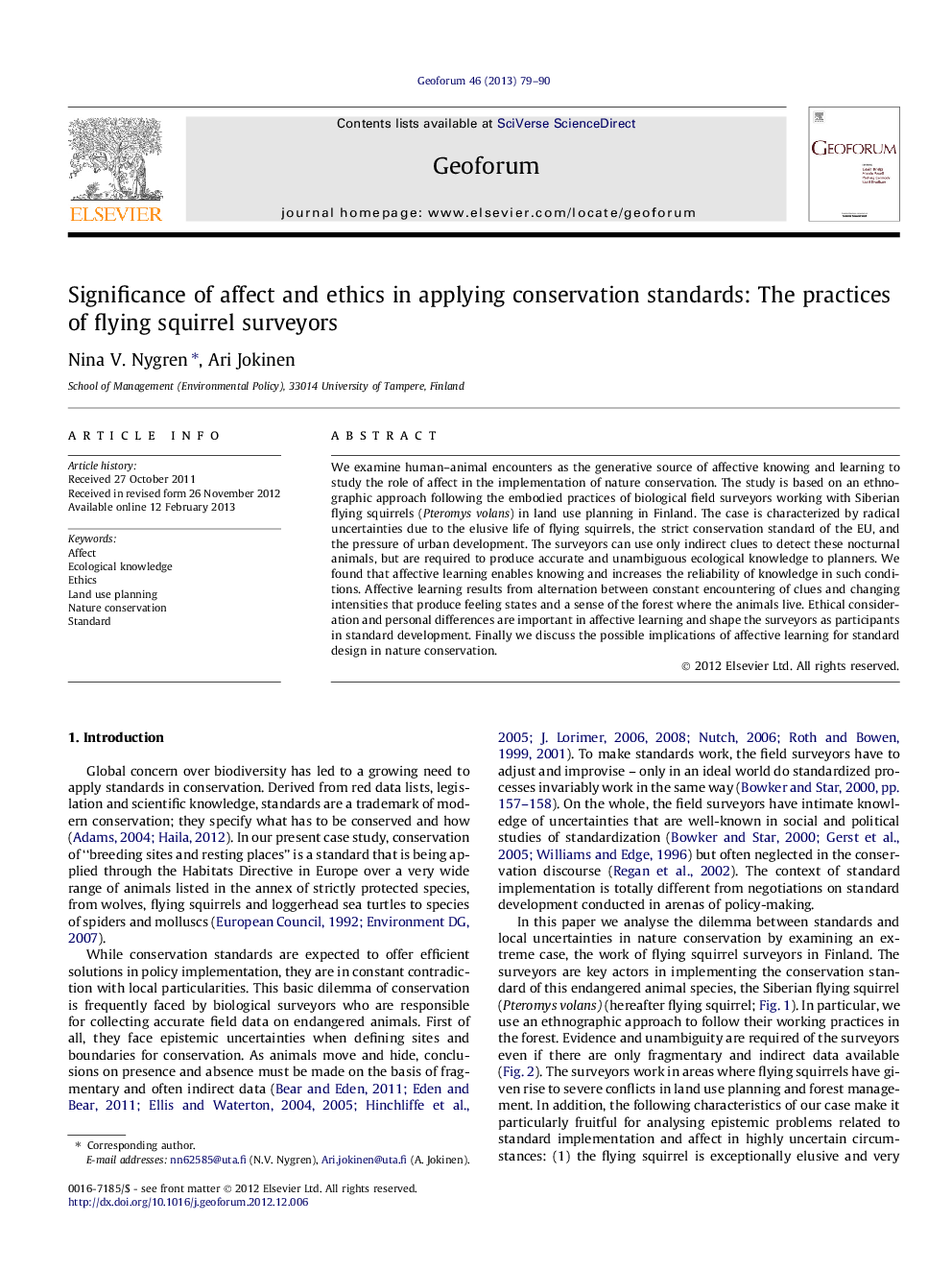| کد مقاله | کد نشریه | سال انتشار | مقاله انگلیسی | نسخه تمام متن |
|---|---|---|---|---|
| 5074367 | 1477143 | 2013 | 12 صفحه PDF | دانلود رایگان |
We examine human-animal encounters as the generative source of affective knowing and learning to study the role of affect in the implementation of nature conservation. The study is based on an ethnographic approach following the embodied practices of biological field surveyors working with Siberian flying squirrels (Pteromys volans) in land use planning in Finland. The case is characterized by radical uncertainties due to the elusive life of flying squirrels, the strict conservation standard of the EU, and the pressure of urban development. The surveyors can use only indirect clues to detect these nocturnal animals, but are required to produce accurate and unambiguous ecological knowledge to planners. We found that affective learning enables knowing and increases the reliability of knowledge in such conditions. Affective learning results from alternation between constant encountering of clues and changing intensities that produce feeling states and a sense of the forest where the animals live. Ethical consideration and personal differences are important in affective learning and shape the surveyors as participants in standard development. Finally we discuss the possible implications of affective learning for standard design in nature conservation.
⺠Biological field surveying creates fine-tuned and complex embodied practices. ⺠Affective human-animal interaction can be based on clues to the animal. ⺠Strict standards in conservation work better through affective learning. ⺠Affect, ethics and standard define a new research field for sustainability. ⺠Field surveyors gradually shape and become shaped by the conservation standard.
Journal: Geoforum - Volume 46, May 2013, Pages 79-90
